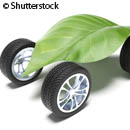 The School of Applied Sciences at Cranfield University in the UK is looking for partners to develop innovative advanced lightweight materials for the next generation of environmentally-friendly electric vehicles. This would include materials using thermoplastics, polymer nanocomposites and fibre-reinforced polymers, composites, and deploy them into the body parts, chassis and heavier interior systems. The project would also look at reducing the structural weight of materials, exploiting new material characteristics, developing related production processes, and carrying out life-cycle and cost-model analyses.You can read more details on the project here.
The School of Applied Sciences at Cranfield University in the UK is looking for partners to develop innovative advanced lightweight materials for the next generation of environmentally-friendly electric vehicles. This would include materials using thermoplastics, polymer nanocomposites and fibre-reinforced polymers, composites, and deploy them into the body parts, chassis and heavier interior systems. The project would also look at reducing the structural weight of materials, exploiting new material characteristics, developing related production processes, and carrying out life-cycle and cost-model analyses.You can read more details on the project here.
The CORDIS Partners Service helps you to find research collaborators in order to benefit from EU or other funding. You can also search by profile type, programme and/or country to find project partners.












 Missing Persons Indicator Project Recruitment
Missing Persons Indicator Project Recruitment Celebrating our Research: Postgraduate Research Showcase 2026
Celebrating our Research: Postgraduate Research Showcase 2026 Nursing Research REF Impact in Nepal
Nursing Research REF Impact in Nepal Fourth INRC Symposium: From Clinical Applications to Neuro-Inspired Computation
Fourth INRC Symposium: From Clinical Applications to Neuro-Inspired Computation ESRC Festival of Social Science 2025 – Reflecting back and looking ahead to 2026
ESRC Festival of Social Science 2025 – Reflecting back and looking ahead to 2026 3C Event: Research Culture, Community & Cookies – Tuesday 13 January 10-11am
3C Event: Research Culture, Community & Cookies – Tuesday 13 January 10-11am ECR Funding Open Call: Research Culture & Community Grant – Application Deadline Friday 12 December
ECR Funding Open Call: Research Culture & Community Grant – Application Deadline Friday 12 December MSCA Postdoctoral Fellowships 2025 Call
MSCA Postdoctoral Fellowships 2025 Call ERC Advanced Grant 2025 Webinar
ERC Advanced Grant 2025 Webinar Horizon Europe Work Programme 2025 Published
Horizon Europe Work Programme 2025 Published Update on UKRO services
Update on UKRO services European research project exploring use of ‘virtual twins’ to better manage metabolic associated fatty liver disease
European research project exploring use of ‘virtual twins’ to better manage metabolic associated fatty liver disease